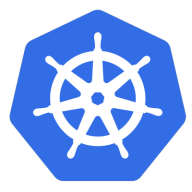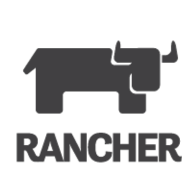

Rancher Labs and Kubernetes are key players in container management. Rancher Labs leads in pricing and support, while Kubernetes shines with its robust features and capabilities.
Features: Rancher Labs offers simplicity with easy deployment, storage integration, and a user-friendly interface. It ensures stability with an open-source platform and regular updates. Kubernetes provides powerful container orchestration, scalability, built-in redundancy, and diverse integrations for complex environments.
Room for Improvement: Rancher Labs should enhance product integration, streamline upgrades, add federation capabilities, and bolster security. Kubernetes needs to reduce complexity, simplify setup, enhance security, and improve troubleshooting and the user interface.
Ease of Deployment and Customer Service: Rancher Labs is flexible, supporting private and public clouds, with strong technical support responsive to user needs. Kubernetes requires more management with a steeper learning curve but benefits from broad community support, ensuring access to shared resources and expertise.
Pricing and ROI: Rancher Labs’ open-source approach provides an affordable entry, although premium support incurs costs, delivering high ROI with its toolset. Kubernetes, while open-source, may result in higher operational costs depending on deployment and cloud provider, offering high value for large-scale operations seeking extensive orchestration capabilities.
What earlier required manual coordination and took thirty to forty minutes per release is now usually completed within ten to fifteen minutes.
We receive revenue and returns from its deployment due to improved services and applications.
I have seen a return on investment, and the metrics in return for the investment are very fast.
In addition to official support, Kubernetes community ecosystem is very strong.
The application is stable, and I seldom require support.
Overall, Kubernetes gives a lot of flexibility to handle growth and spikes without re-architecting the system.
Kubernetes is highly scalable, earning a rating of eight out of ten.
By using horizontal pod autoscalers, Kubernetes automatically adjusts the number of pods based on CPU, memory usage, or other metrics.
As long as best practices are followed, such as proper resource limits, health checks, and monitoring, Kubernetes provides a stable foundation for production workloads.
Our organization performs robust testing before sending changes to production, ensuring the stability of Kubernetes in live environments.
Kubernetes offers high stability, allowing for easy scaling of ports and containers.
Kubernetes is a very mature and reliable platform, and the benefits clearly outweigh the limitations for most production use cases.
Improved documentation would help in gaining scalable knowledge and making it more understandable.
After the upgrade, some pods were not up as expected, leading to downtime.
Kubernetes itself is open source and free, so there is no licensing cost for the software.
Since we use Kubernetes on-premises, the costs are related to our expertise and the personnel we hire.
the setup costs are high.
Kubernetes also offers rollback control and auto-scaling capabilities, which are crucial for maintaining an application's availability even if nodes or pods go down.
The feature that stands out most for me is self-healing. If a pod crashes or a node fails, Kubernetes automatically recreates the pod and maintains the desired state.
For us, having fast storage classes is very important.
| Product | Market Share (%) |
|---|---|
| Kubernetes | 6.9% |
| Rancher Labs | 5.3% |
| Other | 87.8% |

| Company Size | Count |
|---|---|
| Small Business | 26 |
| Midsize Enterprise | 10 |
| Large Enterprise | 47 |
| Company Size | Count |
|---|---|
| Small Business | 6 |
| Midsize Enterprise | 2 |
| Large Enterprise | 6 |
Kubernetes (K8s) is an open-source system for automating deployment, scaling, and management of containerized applications.
It groups containers that make up an application into logical units for easy management and discovery. Kubernetes builds upon 15 years of experience of running production workloads at Google, combined with best-of-breed ideas and practices from the community.
Rancher Labs build innovative, open source software that makes it easy to deploy and manage containers in production on any infrastructure. We enable organizations to accelerate all aspects of their software development pipeline, from writing and testing code to running complex microservices-based applications.
Rancher, our flagship container management platform, allows users to easily manage all aspects of running containers in development and production environments, on any infrastructure. With well over four million downloads, Rancher has quickly become the tools of choice for teams serious about running containers in production. This includes large enterprises such as Sony, IBM, Tyco, Align Technologies and more.
We monitor all Container Management reviews to prevent fraudulent reviews and keep review quality high. We do not post reviews by company employees or direct competitors. We validate each review for authenticity via cross-reference with LinkedIn, and personal follow-up with the reviewer when necessary.